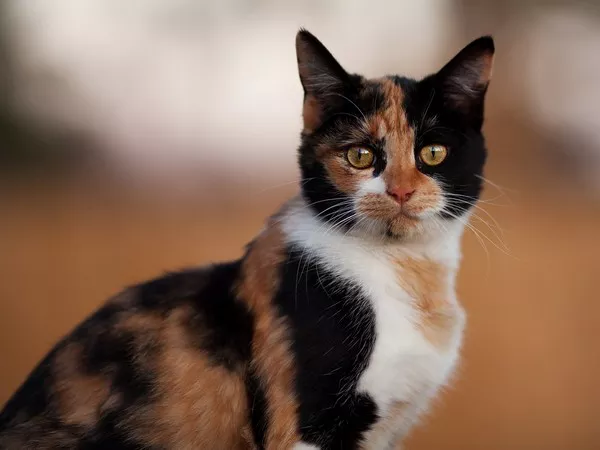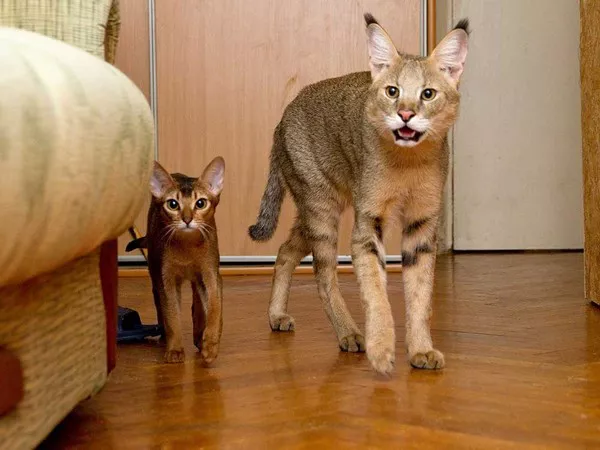As devoted cat owners, we often find joy in sharing a special treat with our feline companions. While it’s important to prioritize a cat’s dietary needs, there are some human foods that can be safely offered as an occasional indulgence. In this article, we explore a variety of human foods that cats tend to enjoy. From protein-rich options to natural catnip alternatives, we’ll uncover the feline-friendly treats that can add a touch of variety to your cat’s diet and keep their taste buds satisfied.
Cooked Chicken
1. Lean Protein Source
Cats are obligate carnivores, which means they require a protein-rich diet to thrive. Cooked chicken is an excellent source of lean protein that cats often find irresistible. Whether it’s boiled, baked, or grilled, plain cooked chicken without seasoning or bones can be offered as a tasty treat. Just be sure to remove any skin or fat to keep it healthy for your furry friend.
2. Nutrient Boost
Chicken also provides essential nutrients like vitamin B6 and niacin, which contribute to a cat’s overall health. Offering small pieces of cooked chicken as an occasional treat can be a way to supplement their diet with beneficial nutrients.
Salmon
1. Omega-3 Goodness
Salmon is rich in omega-3 fatty acids, which promote healthy skin and coat in cats. While fresh, cooked salmon can be a delightful treat, be cautious to remove any bones to prevent choking hazards. Avoid seasoning or spices, as cats have sensitive digestive systems.
2. Moderation is Key
Due to its fat content, salmon should be offered sparingly as an occasional treat rather than a regular addition to a cat’s diet. Too much fat can lead to digestive upset or weight gain.
Catnip Alternatives
1. Minty Freshness
Catnip is well-known for its effect on cats, inducing a temporary state of euphoria. However, not all cats are affected by catnip, and some may prefer alternatives like mint or valerian root. These alternatives can provide a similar stimulating effect, making them ideal for enriching your cat’s playtime.
2. Homemade Catnip Toys
You can create homemade catnip toys by stuffing a small fabric pouch with dried mint leaves or valerian root. These toys can be a fun and engaging way to offer a treat that appeals to your cat’s senses.
Baby Carrots
1. Crunchy and Low-Calorie
Baby carrots are a crunchy, low-calorie option that some cats enjoy nibbling on. They can be a source of entertainment and help satisfy a cat’s natural urge to chew.
2. Dental Health Benefits
Chewing on baby carrots can also promote dental health by helping to reduce tartar buildup and promoting gum health. Just ensure the carrots are cut into small, manageable pieces to prevent choking.
Cooked Egg
1. Protein-Packed Snack
Cooked eggs are another protein-packed treat that can be offered to cats. Make sure the eggs are fully cooked, and avoid using any oil, butter, or seasoning. Scrambled or hard-boiled eggs are easy options to prepare.
2. Rich in B Vitamins
Eggs provide essential B vitamins, including riboflavin and biotin, which support a cat’s skin, coat, and overall health. However, eggs should be given in moderation to avoid excessive fat intake.
See Also: Can Cats Have Eggs? Everything You Need To Know
Conclusion
In conclusion, while it’s important to prioritize a cat’s nutritional needs, there are several human foods that can be safely shared with feline companions as occasional treats. Cooked chicken and salmon offer lean protein and essential nutrients, while catnip alternatives like mint or valerian root can provide sensory stimulation. Baby carrots and cooked eggs are crunchy and protein-rich options that some cats enjoy. When offering human foods to your cat, remember to do so in moderation, avoiding seasonings, spices, and bones. Always consult your veterinarian before introducing any new treats into your cat’s diet, especially if your cat has dietary restrictions or health concerns. By providing a balanced and varied diet, you can add a touch of excitement to your cat’s meals while ensuring their well-being and happiness.

























